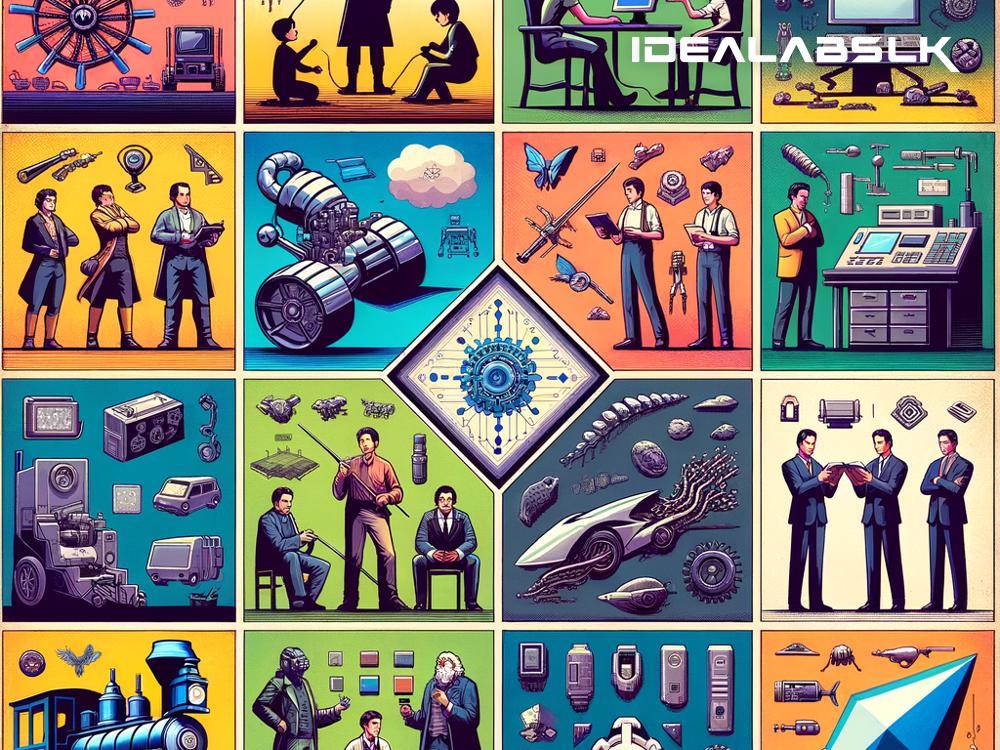The Evolution of Game Engines: Simplifying Complexity in Game Development
Gaming has been a cornerstone of digital entertainment for decades, evolving from simple pixelated screens to breathtakingly realistic environments. This evolution has been largely powered by a behind-the-scenes hero: the game engine. Let's dive into the fascinating history of game engines, exploring how they've transformed video game development from a complex, code-heavy task into an increasingly accessible and creative endeavor.
The Early Beginnings: Pre-Engine Era
Before game engines became a thing, early video game development was akin to reinventing the wheel with every new game. Developers wrote code from scratch for each game, a process that was both time-consuming and limiting. Games were simpler then, but so was the technology, meaning developers had to meticulously program every aspect of the game, from graphics to physics, for each new project.
The Dawn of Game Engines: 1990s
The concept of a game engine began to take shape in the early '90s, with the release of id Software's "Doom" being a pivotal moment. Doom's engine, known for rendering 3D spaces in a way that was revolutionary for the time, was not just about one game. It introduced the idea that a core software framework could be reused to develop multiple games, saving developers time and allowing them to focus more on the creative aspects of game design. This period marked the beginning of specialized software tools that managed graphics, physics, AI, and more, laying the groundwork for the modern game engine.
Expanding Horizons: Unity and Unreal
Two names stand out when discussing the monumental shift in game development: Unity and Unreal Engine. These engines, emerging in the early 2000s, opened up whole new worlds for developers and creators. Unity, launched in 2005, was lauded for its user-friendly interface and flexibility, making game development more accessible to beginners and indie developers. Unreal Engine, known for its cutting-edge graphics and comprehensive toolset, became synonymous with AAA game development and cinematic quality visuals.
Both engines empowered developers to bring their visions to life without getting bogged down in the minutiae of coding everything from scratch. Importantly, they democratized game development, allowing smaller teams and even individual creators to produce games that could compete with the outputs of larger studios.
Mobile and Indie Revolution
As smartphones became ubiquitous, the demand for mobile games soared, leading game engines to evolve further. Engines like Unity optimized their platforms for mobile development, offering tools and features specifically designed for the challenges and characteristics of mobile games. This adaptability fueled the rise of the indie game movement, with individual developers and small teams now capable of creating games that could captivate audiences and achieve commercial success.
This era saw the birth of indie hits like "Flappy Bird" and "Monument Valley," games that, despite their simplicity, charmed players worldwide. The success of these games underscored the power of creativity unleashed by accessible game development tools.
Today and Beyond: The Age of Realism and Virtual Worlds
Today, game engines like Unreal Engine 5 and the latest iteration of Unity are pushing the boundaries of realism and immersion. With features like real-time ray tracing and photorealistic asset libraries, these engines are not just about games anymore. They're being used in film production, architectural visualization, and virtual reality, showcasing their versatility and the blurring lines between digital and physical realities.
The future of game engines lies in further simplifying the development process while increasing the power and fidelity of the experiences they can create. Tools like Epic Games' MetaHuman Creator hint at a future where creating hyper-realistic characters is as simple as dragging and dropping elements in a user-friendly interface.
Conclusion
The history of game engines is a testament to human ingenuity and the relentless pursuit of making dreams a tangible reality. From the coding marathons of the pre-engine era to the sophisticated, multi-purpose platforms of today, game engines have not only revolutionized how games are made but also who gets to make them. As we look towards the future, one thing is clear: the evolution of game engines will continue to democratize creativity, opening up new realms of possibility for storytellers, artists, and dreamers around the world.

